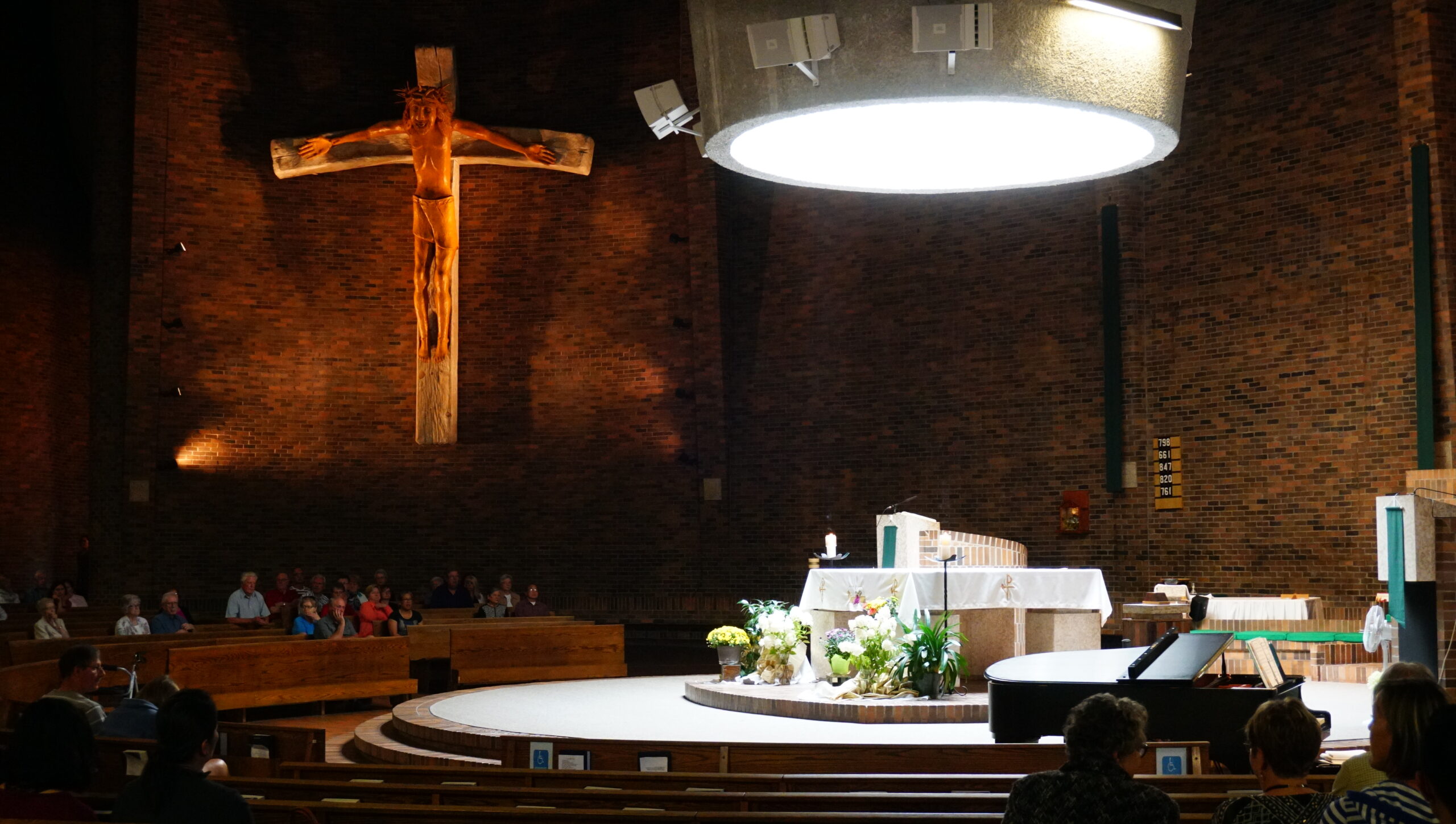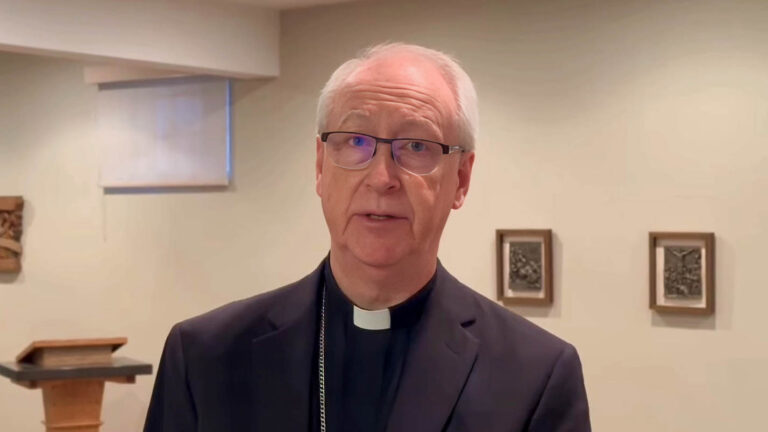Mass for Pastoral Visit to Saint Mary Parish, Red Deer
Homily
[Exodus 17:3-7; Psalm 95; Romans 5:1-2, 5-8; John 4:5-42]
I am very pleased to have the occasion to visit this weekend Saint Mary parish. Be assured that Fr. Mirek is keeping me very busy. This pastoral visit began Friday by spending a good portion of the day with the leaders and teachers of Red Deer Catholic School Division. Catholic Social Services took me under their wing both Friday and Saturday and toured me through a number of their ministries. I’ve had the opportunity to visit some patients in the Red Deer hospital, and on Sunday afternoon will have a meeting with parishioners as well as the pastoral council, finance and liturgy committees, and the parish team. In all of this I want to say how greatly edified and encouraged I am by what I am witnessing. Much good – great good – is happening. Now, for this homily, I would like to place all that I am seeing here in the context of the scriptural passages we have just heard proclaimed. Viewing all the good works from the perspective of God’s Word deepens our appreciation of how necessary and beautiful they are, demonstrates how they flow from our identity as followers of Jesus Christ and our encounter with him, and encourages us to continue and do even more.
We begin with the first reading from Exodus. The passage recounts an episode that happened while the ancient Israelite people, led by Moses, are traveling from Egypt toward the promised land. They are in the desert and thirsty. Now, let’s pause and linger over this one fact. The reading opens this way: “In the wilderness the people thirsted for water…” Right away this signals a profound connection between the experience of those people long ago and ours today. We, too, in a variety of ways, are living in a wilderness; we, too, are very thirsty. Allow me to give some examples to illustrate what I mean.
My mind goes to the students cared for by Red Deer Catholic schools. In fact, it was here in Red Deer, during a visit to one of the schools a number of years ago, that a custodian gave me advice, which has since stayed with me: “Pay attention,” he said, “to the students who choose to come early to school and stay late; they feel safer at school than they do at home.” This bespeaks the wilderness of a difficult family life, known by not a few of our children. I think as well of all our young people, irrespective of family conditions, now wandering in the wilderness of social media, which, in many respects, is a wasteland both arid and dangerous.
Catholic Social Services invited me to their ministries with vulnerable women in the Red Deer area, with immigrants and refugees, and to homes they have established for persons with developmental disabilities, brain trauma, or a variety of other challenging conditions. At the hospital, I met medical personnel very dedicated to providing care for patients with serious illness. In all of these situations, I met people who, were it not for the loving attention given them, might well experience an inner wilderness in which hope threatens to dry up.
What about ourselves? The experience of desert is foreign to none of us. A deep thirst for life and meaning resides in every human heart. If, like the Samaritan woman in the Gospel once did, we seek to assuage it in pursuits that cannot satisfy, the borders of our existential deserts only expand and our thirst becomes more acute. The terrain on which we move cracks, and fissures emerge that divide families, societies, and eventually even nations.
“In the wilderness the people thirsted for water…” That describes not only a moment in ancient history but also a present reality.
The water we need, the water that alone can satisfy, is Jesus Christ. That is what the Samaritan woman discovered when she met Jesus at Jacob’s well. In response to her thirst, he promises her living water, by which he is referring to the Holy Spirit he will pour out upon his Church. The call here to each of us, as we wander thirsty through our own deserts, is to sit down at the well for an encounter with Jesus, in whom we thirst no more.
That well is the Eucharist. In this wondrous sacrament, Jesus nourishes us with his very Body and Blood and thus fills us anew with the gift of the Holy Spirit. But let’s observe carefully from the Gospel account that the encounter with Jesus is an event in which thirst meets thirst. Both the Samaritan woman and Jesus were thirsty: she for physical water, he for her faith. When we come to the well that is the Eucharist, our thirst is for the living water of the Spirit, and that of our Lord remains his deep desire that we place our faith in him, that we entrust the entirety of our lives to his love and mercy. When in the Eucharist these two thirsts meet and are satisfied, the inner desert is watered with new life that flows toward others.
The Samaritan woman went off to tell her people about Jesus Christ and the new life she found in him. The Eucharist sends us forth to do the same. This is what I witnessed in the people involved in Red Deer Catholic Schools, Catholic Social Services and the hospital. This is what I see in the good works of this and other parishes of the Archdiocese. The many good deeds flow from the well of the Eucharist. By them we announce to others that the thirst of the human heart can be slaked, and the wilderness of life transformed, in the encounter with the person of Jesus Christ, the Eternal Son of God.
As we draw near now to the sacred well, not that of Jacob but of Holy Mass, let us drink deeply from the love and hope that Christ offers here. May this life-transforming encounter inspire us to even greater works, because the deserts of today are vast and growing, in need of the life-giving water that only Jesus Christ can give.
Most Reverend Richard W. Smith
Saint Mary Parish, Red Deer, Alberta
March 11th -12th, 2023



